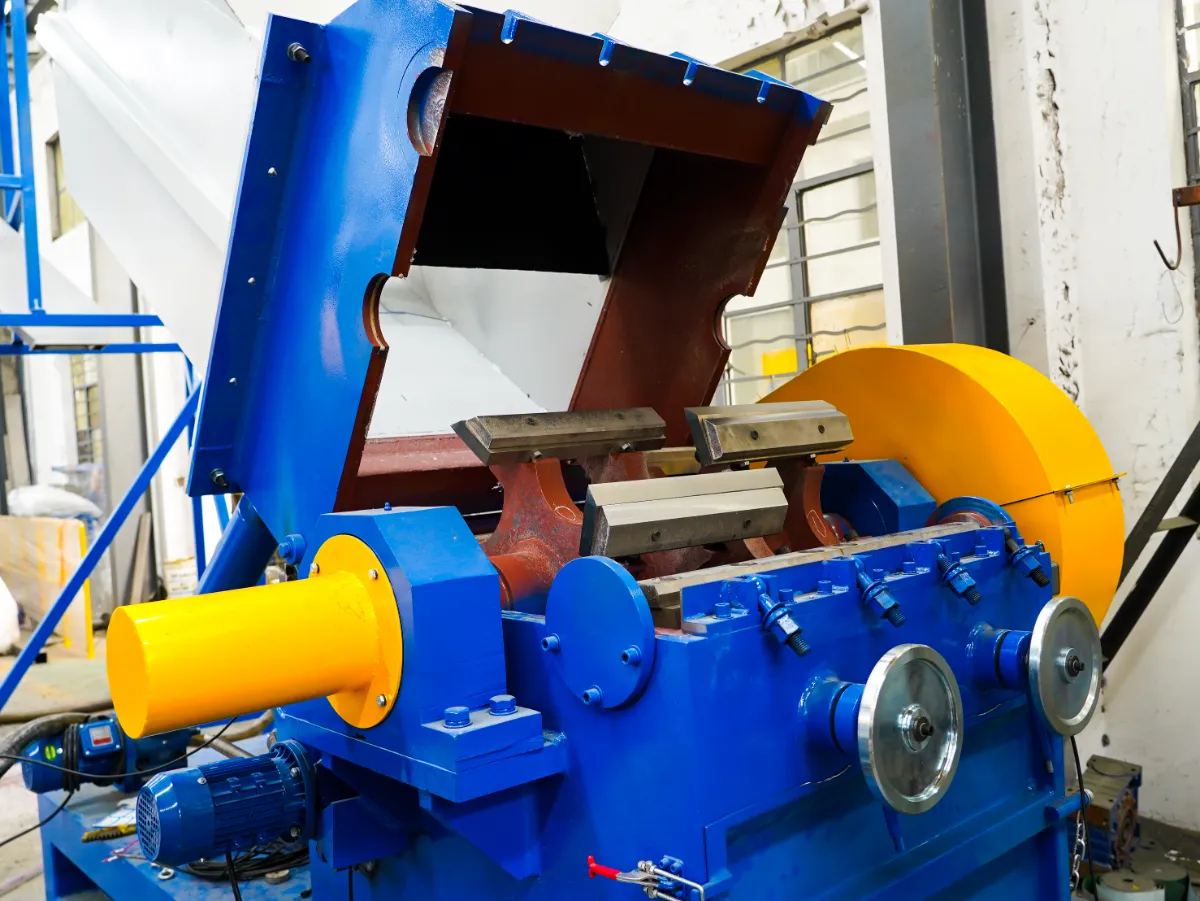Selecting the right plastic granulator machine for your recycling needs is crucial to ensuring efficiency, sustainability, and cost-effectiveness in your operations. Here’s a guide to help you navigate the options without getting bogged down in technical jargon.
Contents
- 1 Understand Your Needs
- 2 Types of Plastic Granulator Machines
- 3 Considerations for Selection
- 4 Economic Considerations
- 5 Consult with Experts
- 6 Conclusion
- 7 FAQ Section
- 7.1 Q: What is a plastic granulator machine?
- 7.2 Q: What types of plastic can be processed by a granulator?
- 7.3 Q: How do I choose the right size granulator for my needs?
- 7.4 Q: Can plastic granulators handle mixed types of plastics?
- 7.5 Q: How can I ensure the safety of operators when using a plastic granulator machine?
- 7.6 Q: What maintenance does a plastic granulator require?
- 7.7 Q: Are there environmentally friendly plastic granulators?
- 7.8 INQUIRIES
Understand Your Needs
Firstly, consider the type of plastic materials you intend to process. Different granulators are better suited to different materials, such as rigid plastics like PET bottles, or flexible ones like film wraps. The volume of plastic you need to process will also influence your choice—larger operations will require machines with higher capacities.
Types of Plastic Granulator Machines
- Rotary Granulators: Ideal for continuous processing of bulk materials. They use a rotating blade to chop plastic into granules and are suitable for a wide range of applications.
- Shredder Granulators: Best for tough materials that need shredding before granulation. They combine the actions of shredding and granulating, making them perfect for handling more complex recycling tasks.
Considerations for Selection
- Quality of Output: Ensure the granulator can produce the size and quality of granules required for your recycling or production processes. The uniformity and cleanliness of the output can affect the value of your recycled material.
- Throughput: Match the machine’s capacity to your processing needs. A machine that’s too small will bottleneck your operations, while an excessively large one will waste resources.
- Ease of Maintenance: Look for machines that are easy to clean and maintain. Downtime for maintenance can significantly affect your operation’s efficiency.
- Safety Features: Prioritize machines with built-in safety features to protect operators. This includes guards, emergency stops, and ease of access for cleaning and maintenance without compromising safety.
Economic Considerations
While the initial investment in a plastic granulator machine is a critical factor, also consider long-term costs such as maintenance, blade replacement, and energy consumption. A more expensive machine might offer lower operating costs over its lifespan, representing better value for money.
Consult with Experts
Before making a decision, it’s wise to consult with manufacturers or suppliers who can offer detailed insights into the capabilities and suitability of different granulator models for your specific requirements. They can also provide valuable information on the latest technologies and innovations in the field of plastic recycling.
Conclusion
Choosing the right plastic granulator machine involves understanding your needs, considering the types of plastics you’re processing, and matching those needs with the right type and size of the granulator. Paying attention to output quality, maintenance requirements, safety, and economic factors will help you make an informed decision that enhances your recycling operations’ efficiency and sustainability. By prioritizing these considerations, you’ll be well on your way to selecting a machine that fits your needs perfectly, ensuring a smooth and efficient recycling process.
Remember, the goal is not just to buy a machine but to invest in a solution that enhances your recycling capabilities, reduces waste, and contributes to a more sustainable future.
FAQ Section
Q: What is a plastic granulator machine?
A: A plastic granulator machine is a piece of equipment used to break down large pieces of plastic into smaller granules for recycling, making it easier to process and repurpose waste plastic into new products.
Q: What types of plastic can be processed by a granulator?
A: Plastic granulators can process a variety of plastics, including PET, HDPE, PVC, LDPE, PP, and more, making them versatile for recycling different types of plastic waste.
Q: How do I choose the right size granulator for my needs?
A: The right size depends on the volume of plastic waste you process, the physical space available, and the specific requirements of your recycling operation. Consider the machine’s throughput capacity and compare it with your daily or hourly processing needs.
Q: Can plastic granulators handle mixed types of plastics?
A: Yes, some granulators are designed to handle mixed plastics, especially those equipped with advanced shredding and sorting capabilities. However, sorting plastics before granulation can improve efficiency and the quality of the output.
Q: How can I ensure the safety of operators when using a plastic granulator machine?
A: Ensure your granulator has appropriate safety features like emergency stop buttons, safety guards, and training for operators on proper usage and safety protocols. Regular maintenance checks are also crucial to ensure safe operation.
Q: What maintenance does a plastic granulator require?
A: Regular maintenance includes checking and replacing worn blades, cleaning the machine to prevent blockages, and ensuring all moving parts are well-lubricated. Follow the manufacturer’s maintenance schedule for optimal performance.
Q: Are there environmentally friendly plastic granulators?
A: Many modern plastic granulators are designed with energy efficiency in mind, reducing electricity consumption and incorporating features that minimize waste and promote sustainable recycling practices.
INQUIRIES
To get the latest prices and lead times, send us a message using the form below.




